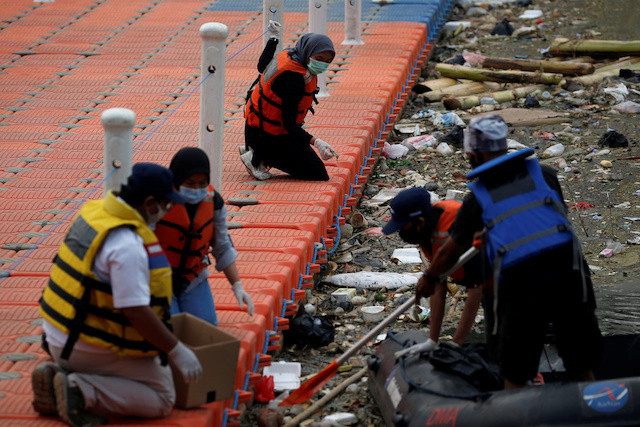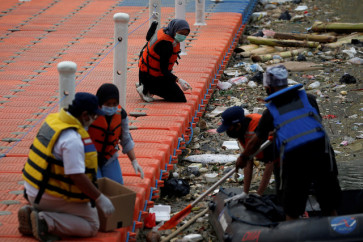Popular Reads
Top Results
Can't find what you're looking for?
View all search resultsPopular Reads
Top Results
Can't find what you're looking for?
View all search results'Ticking bomb': Indonesia grapples with medical waste spike during pandemic
Change text size
Gift Premium Articles
to Anyone
I
ndonesia is grappling with what health authorities have described as a “significant increase” in medical waste during the COVID-19 outbreak, with a shortage in processing facilities forcing the government to allow hospitals to burn their waste without license in times of emergency.
Environment and Forestry Ministry Director General for Waste Management Rosa Vivien Ratnawati said the volume of medical waste spiked by between 30 and 50 percent over the course of the epidemic, which was first detected in Indonesia in early March.
As of Oct. 15, the country had produced 1,662.75 tons of waste related to COVID-19, she said. Jakarta alone reported that it has handled 860 kilograms of disposable masks throughout the outbreak.
Indonesia -- home to about 3,000 hospitals, as well as community health centers and clinics each totaling more than 10,000 -- produced some 295 tons of medical waste daily in 2019, according to the Health Ministry.
Medical waste is considered hazardous and therefore must be processed in specific waste-processing facilities, which were insufficient and unevenly distributed even prior to the COVID-19 epidemic.
It is estimated that every day during the outbreak, 88 tons of medical waste could not be processed. As a result, much of the waste could be found polluting the country's rivers, such as in the Cisadane River in Banten, which separates Tangerang regency from South Tangerang city.
Read also: In Indonesia, coronavirus floods Cisadane River with extra hazard medical waste


















